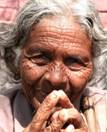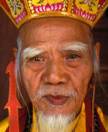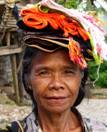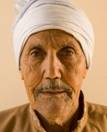|

|
|
UN Open-Ended
Working Group on Ageing Daily Summary - 3
By Bethany
Brown and Seriana van den Berg
August 3, 2011
2nd Session of
the UN Open-ended Working Group on Ageing
Morning Session
At its August 3rd session the Open-Ended Working Group
focused on social security and human rights. The
Kenyan National Human Rights institution assesses the
human rights of older people in Kenya. Its
leadership described the aging process as being
concurrent with the retrogression of rights and
identified older people as a group with an
often-limited capacity or power to advocate on their
own behalf; it’s a group with few advocates. An
expert community organizer from the Phillipines
described the challenges of changing the perspectives
older persons have of their own situations.
The independent expert on the question of human rights
and extreme poverty drew the listeners to the design
and implementation of social security programs for
older persons. She urged her listeners to respond to
the world’s changing demographic profile, increased
informal labor, and HIV/AIDS epidemic.
Discussion from the floor included examples of good
practices and intergenerational norms. Where
non-contributory pensions exist, they sometimes
represent the only income source for an older person
and his or her extended family in intergenerational
households. In other situations, some states
have laws that assign a duty to adult children to care
for their parents. This system must confront
several disadvantages: difficulty of enforcement;
adult children must care for them, particularly in
communities affected by HIV/AIDS; and the implicit
requirement to produce children in the first place.
Some member states highlighted that while
international law exists, implementation gaps
remain the rule. Older people don’t have the
right to protection from international
law. These failures confront older people
living in poverty, which, affects their other rights,
such as the right to health. This situation
amounts to a de facto implementation gap. This
expert urged member states to avoid weakening existing
positive steps toward full implementation of social
security for older persons. Rather, the expert urged
attention to rights that are currently going
unenforced.
Edited at Global Action on Aging from text submitted
by
Bethany Brown, JD*
Policy and Advocacy Fellow, Help Age USA
*New York Bar Admission Pending
Afternoon Session – “Age and Social
Exclusion”
Panelists discussed social exclusion, and emerging
ways to engage older people in the afternoon
session. Few comments were made from the floor.
The chair suggested the following questions to be
addressed during the session:
1. What is the scale of social
exclusion?
2. What are the main forms of
exclusion that effect older persons?
3. What are the risk factors that
contribute to exclusion?
4. What are the measures that have
been taken to combat social exclusion and what other
steps could be envisioned?
Ellen Bortei University of Ghana
Spoke of the situation in Ghana.
Social exclusion in Ghana has not gained much
attention but it is a growing reality.
Apparently older people are in control and
traditionally they have authority. 66% say to be heads
of households but there is growing rebellion against
older people and they lack the resources to support
their households.
She spoke of the different legislations that exist in
Ghana among others the National Aging Policy that was
implemented in 2010.
Exclusion includes income insecurity and older people
are overrepresented in the poverty category.
Concerning health care only 2% of 60+ are registered
for the National Health Insurance Scheme and another
example showing lack of health care access is that
very few older people use bed nets. Older people lack
income support only 10% of the workforce has social
security. Most older people rely on informal support
and as their children move out this erodes. Also older
people are moving out of rural environments and become
isolated in urban areas. Remittances are not as wide
spread as believed. Research showed that only 30.5% of
women and 17.8% of men receive them. Recently social
pension schemes were introduced but cover a limited
number 40.000 households
Oldrich Stanek of Zivot 90 from Czech Republic
Work on social inclusion and to give a voice to older
people.
8 recommendations prepared for the prevention of
social exclusion:
1. Guarantee minimum income - right
to minimum pension.
2. Develop minimum income standards
that meet older people’s needs including access to
health, social participation, housing.
3. Include older people in national
action plans
4. Agree on specific national
poverty targets according to age and gender.
5. Enforce gender equality and
employment to provide resources for women
6. Provide adequate resources to
live in dignity specifically for the most vulnerable:
women, unemployed, forced early retired, older
migrants
7. Smooth transition into retirement
8. Promote individual wellbeing and
quality wellbeing including access to standard
health services and long term services.
Encourage inclusion of older persons and pay attention
to most vulnerable
Developed a tool kit to facilitate participation of
older people
http://www.age-platform.org/ and also work
on intergenerational projects
Himanshu Rath - Agewell International
Increase of older people will be greatest in
developing countries - will quadruple in 50 years.
Traditionally old people are respected. Views are the
same but life has changed - older people live isolated
existence. They are seen as utilizers not providers
and as advisors not workers. Quote by Mother Theresa:
‘Loneliness and feeling of being unwanted is the most
terrible poverty’
Circumstances force old people to remain invisible.
United efforts are needed.
Asks attention for gender divide as there are many
more older women and 90% have no knowledge of human
rights due to illiteracy. 44% of older people are
living in inhumane conditions. Human rights are
embedded in international human rights conventions but
still human rights violated.
What is needed: equal protection before law, right to
own property, continued education, work, active
participation in governance, access to health and
social services. By 2040 more older people then young.
Ageism and age discrimination are unacceptable - we
need a human rights convention
Comments from the floor:
Several countries spoke of the importance of an
inclusive protection system for all and that we have
to move out of local vision into international
community that we are.
Older people need to be included in the debate, the
diversity of older people between and within countries
acknowledged, the need for training of human resources
in gerontology and that it is important to incorporate
an intergenerational perspective.
Examples were given of high percentage of older people
feeling dependant, useless, having a negative attitude
towards getting old and those experienced abuse
because of their age.
An international convention would help and avoid
discrimination.
Attention was also asked for the fact that developed
countries must understand the situation of developing
countries. In developed countries no one is accused of
witchcraft - their citizens enjoy pensions, health
care, social security. It was commented that developed
countries strongly supported the disabilities
conventions but now seem opposed. Why was asked - is
this discrimination against older people? It was
stressed that there is an urgent need to look at the
global picture.
Submitted by
Seriana van den Berg
Visiting Scholar
AARP Office of International Affairs

 

|





